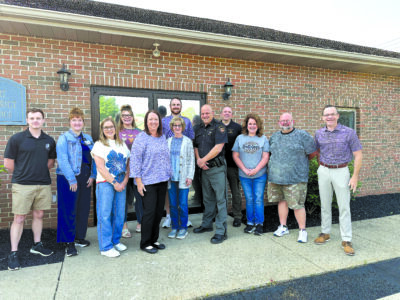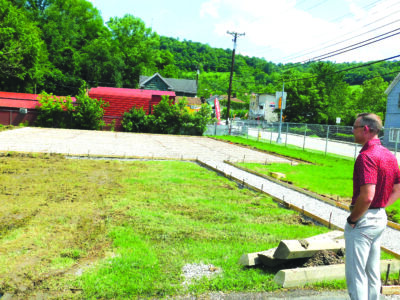DeWine: Stay at home

AP File Photo Ohio Governor Mike DeWine asked Ohians to stay at home Sunday during his daily press conference.
Gov. Mike DeWine’s administration is enacting a stay-at-home order as the number of cases in the state spiked Sunday to more than 350.
DeWine said the stay-at-home order will start to be enforced Tuesday by local health departments and local law enforcement.
“This is a health order, it’s not a health suggestion, and so we would expect people to comply with it,” DeWine said at a news conference at his office.
He said the order includes things he’s already been asking residents to do, such as stay at home except for essential needs.
It also includes a list of businesses that are classified as essential and allowed to stay open, he said. The order is reasonable, he said, and keeping people at home and preventing transmission of the virus can help buy time so that the state’s hospitals do not become overwhelmed, he said.
“If everybody cooperates, we’re going to save a lot of lives,” he said.
The spreading virus has infected more than 350 people in 40 counties, up more than 100 cases in the past day, with more than 80 in hospitals, DeWine’s office said Sunday. Three people have died, his office reported.
Amy Action, the director of the Ohio Department of Health, said there is “an incredible shortage of testing,” so the available coronavirus tests are being conserved for the highest-risk patients.
A look at coronavirus-related developments in Ohio on Sunday:
——
HYDROXYCHLOROQUINE AND CHLOROQUINE
The Ohio Board of Pharmacy moved to prevent hoarding of a malaria drug that President Donald Trump has suggested could treat people with the coronavirus. The board took an emergency 7-0 vote Sunday by telephone on a new regulation designed to prevent hoarding of hydroxychloroquine and a similar drug — chloroquine — that are sold around the world under a variety of brand and generic names.
They are malaria drugs that are seeing a surge in nationwide demand after Trump suggested they could treat people with the coronavirus, even though the federal government’s top infectious disease expert, Dr. Anthony Fauci, said science does not support that idea.
Under the new regulation, pharmacists cannot dispense chloroquine or hydroxychloroquine or sell them for a COVID-19 diagnosis unless it fulfills various prescribing requirements, including a positive test result, and is limited to a 14-day supply. They are prohibited from selling the drugs for prophylactic use for the coronavirus.
Currently, there is no medicine specifically approved for treating COVID-19.
The board said the rule will ensure the drugs are dispensed appropriately to patients who rely on them to treat conditions such as malaria, rheumatoid arthritis and lupus.
——
The Associated Press receives support for health and science coverage from the Howard Hughes Medical Institute’s Department of Science Education. The AP is solely responsible for all content.
Copyright 2020 The Associated Press.





